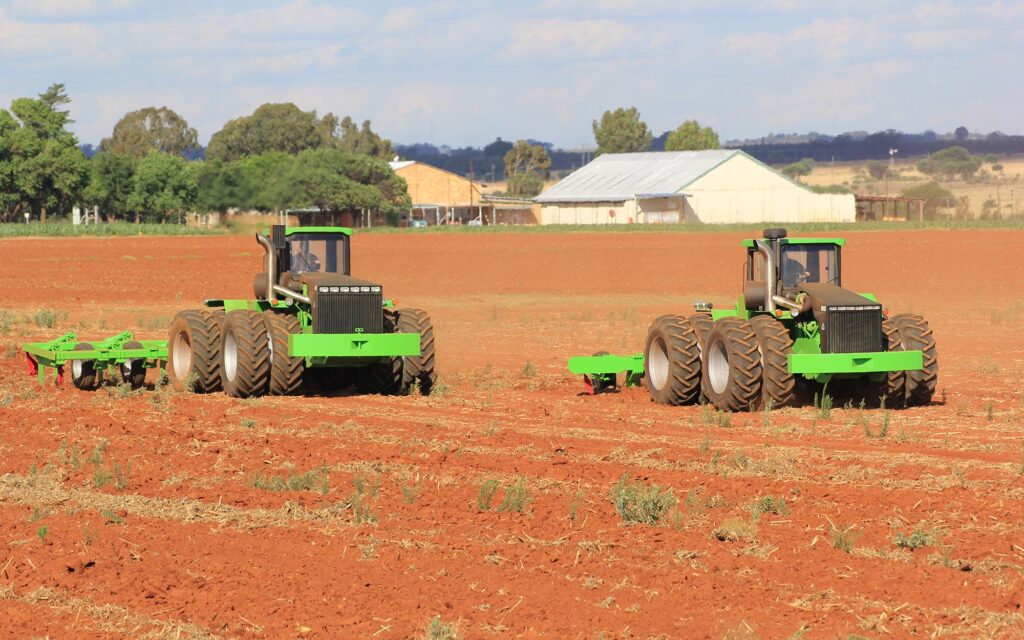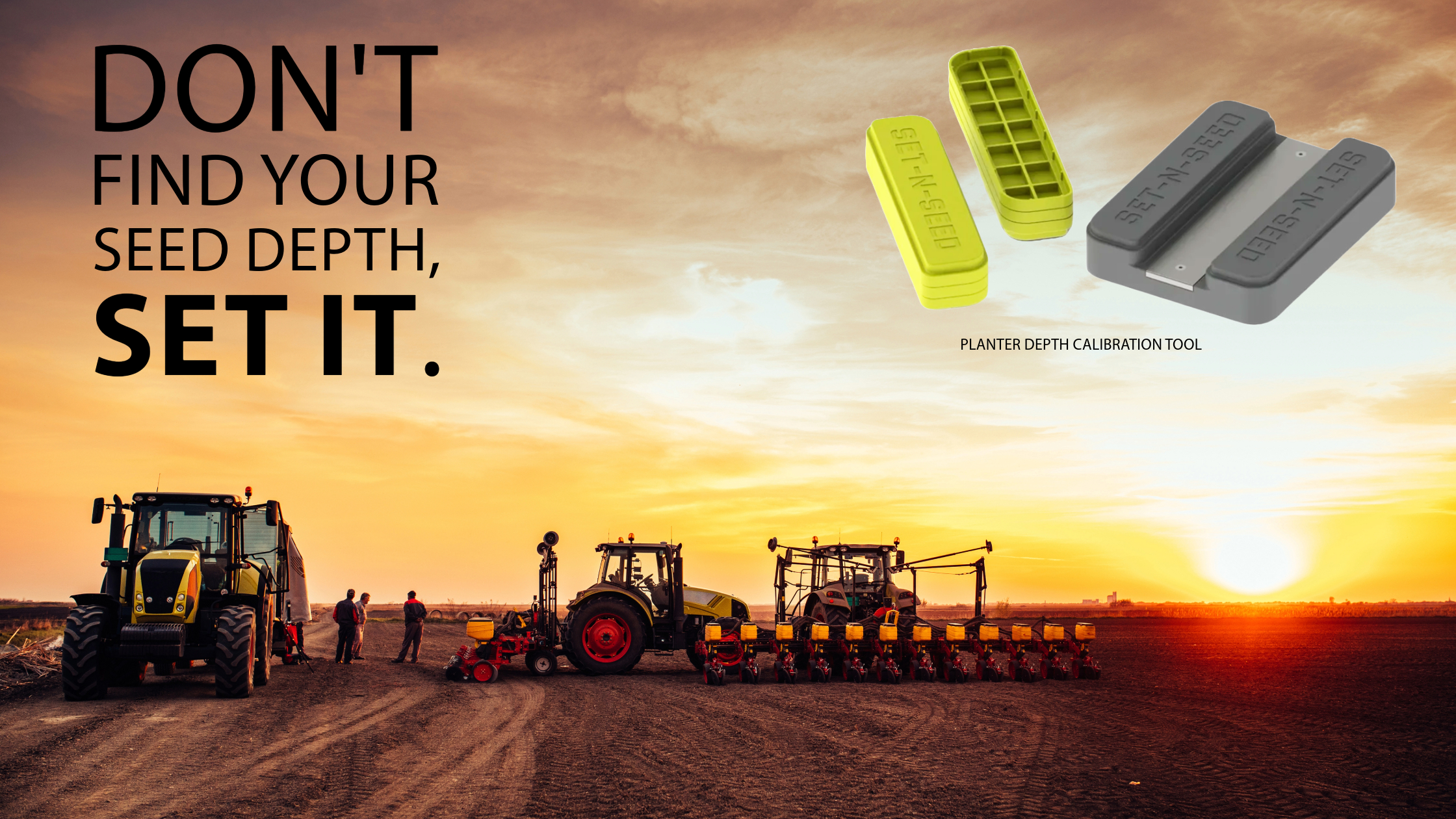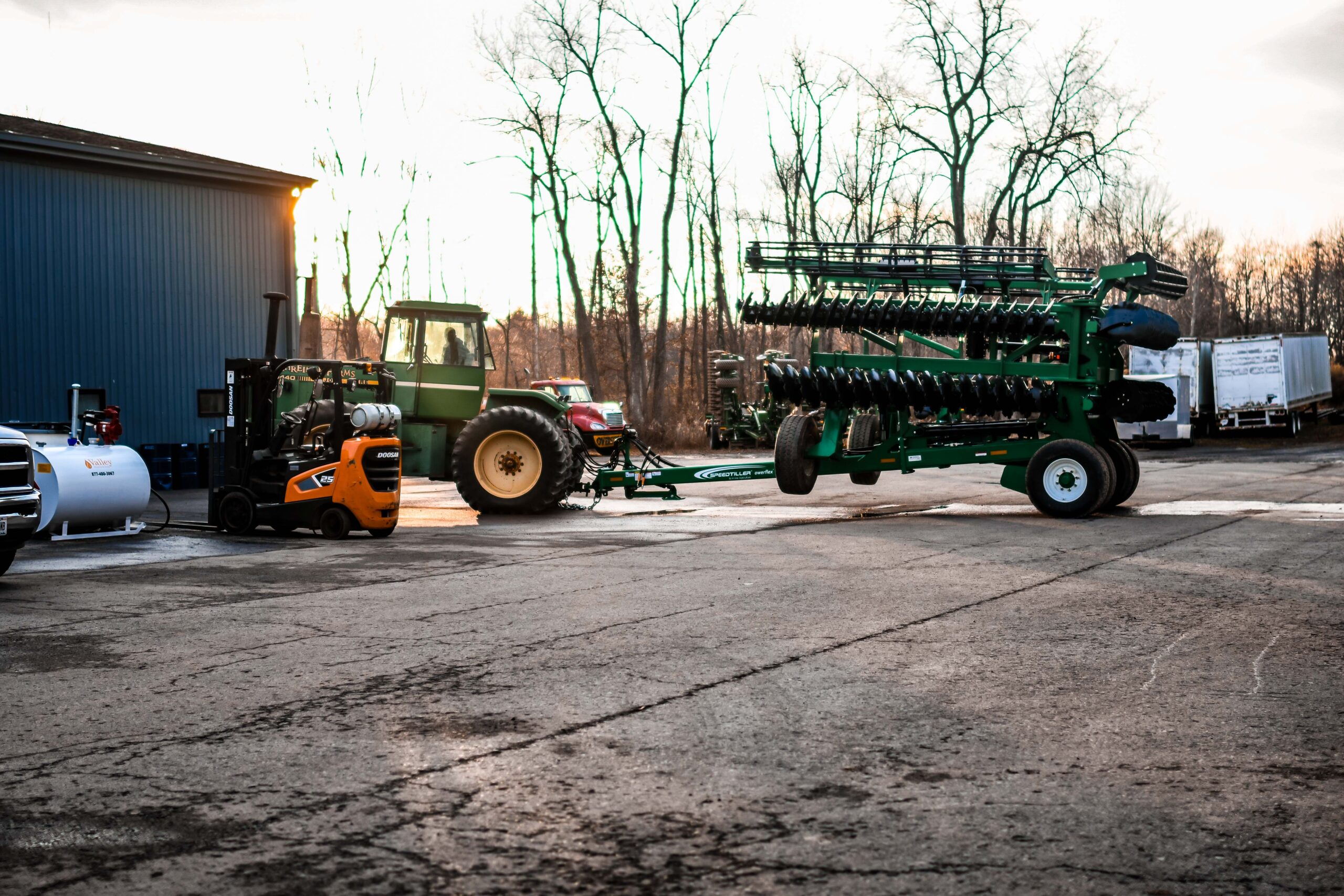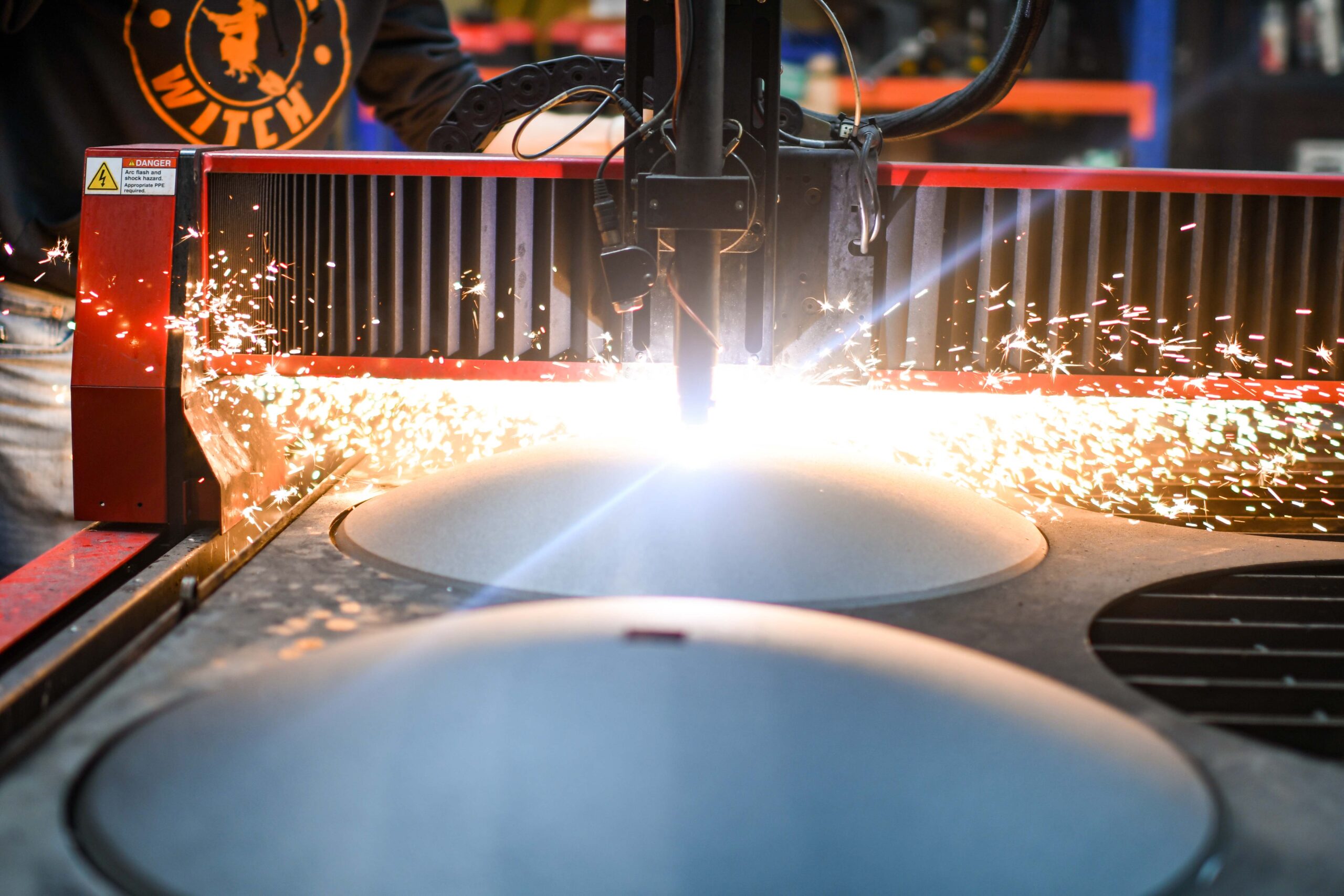
The Complete Guide to Ripper Points
What Is Ripping?
Ripping is the process where growers mechanically break up compacted hardpan soil layers before planting crops or following harvest season. Growers prefer using rippers to efficiently combat compaction issues with limited disturbance to a soil’s upper surface layers.
Over time, however, deep ripper points experience wear and tear, specifically in tough soil conditions that contain rocks and need to be repaired or replaced frequently.
What Are the Benefits of Ripping?
Ripping provides various benefits for growers that use conventional tillage practices, including:
Breaking Up Hardpan
For soil areas with compaction issues, ripping helps break up hardpan. This can enable plants to grow stronger, deeper root systems, which helps carry them through the dry season and can even increase yield in certain instances.
Increased Water Infiltration
Ripping increases an area’s direct surface water infiltration, thereby improving the site’s soil conditions and lowering the demand for concentrated runoff control.
Enhanced Groundwater Dispersion
Deep ripping the soil helps enhance groundwater recharge and provides better dispersion across your growing site.
Promotes Revegetation
Growers that practice ripping promote the restoration of soil permeability, drainage, and water capacity for the healthy development of crops. In this way, ripping can help promote long-term revegetation.
What Are the Challenges of Ripping?
Ripping is an important part of maintaining healthy soil and maximizing plant growth. However, it also comes with its own set of challenges.
Point Selection
One of the most common issues is the selection of ripper points. They come in a variety of shapes and sizes, and selecting the right one for your soil type is essential. If you choose the wrong one, it can cause damage to your equipment or soil structure issues, such as compaction or erosion. To avoid this problem, make sure to select the correct ripper point for your soil type and ensure it’s made of high-quality materials before using it.
Soil Contamination
Another issue that many growers face when using rippers is the potential for soil contamination. As they dig into the ground, they can bring up soil particles and debris that may contain disease-causing organisms, weed seeds, or fertilizer. To prevent this from happening, clean or replace ripper points after each use to reduce the amount of particles and debris that get spread around.
Equipment Safety
When operating a ripper, it’s important to think about the safety of your workers and equipment. Make sure to have safety protocols in place before using the tool, such as wearing protective gear and ensuring that the ripper points are securely attached. Additionally, be sure to inspect for any damage or wear and tear before using it, as this can lead to serious accidents.
Key Components of Ripper Points
Ripper points are made up of several different components, including:
Ripper Shank
The first component is the shank, a long metal rod that is driven into the ground and serves as the base of the ripper point. It helps to create an area of concentrated force that is beneficial for the soil.
Ripper Blade
The second component is the knife-blade or tine. This part of the ripper point is designed to penetrate deep into the soil and loosen it up so that water and nutrients can be absorbed more easily. Different types of tines are available for different types of soil, so it’s important to choose the right one for your needs.
Wing/Sweep
The third component is the wing or sweep. This part of the ripper point helps to spread out the force created by the shank and knife-blade in order to create a wider area of loosened soil. It’s important to ensure that this part is properly aligned with the shank and knife-blade in order to maximize effectiveness.

What Sets RangeLine Ripper Points Apart?
Our selection of ripper points outlasts the competition because they’re made of high-quality materials, including:
Chrome Carbide
Everyone knows that adding chrome to the mix increases wear life, but we also know that chrome is brittle. RangeLine Group has worked hard to get the right mix of materials to make a point that not only wears longer, but is durable in rocky conditions.
Heat Treating
Heat Treating is a critical component to the process that makes our ripper points hardened to the proper rockwell hardness numbers, therefore enabling longer wear times.
Ripper Shank Protector
RangeLine’s shank protectors are made out of the same material and go through the same process as ripper points. They also are shaped as a triangle which allows the shank protector to shed soil and trash residue, dealing with the common issue of dragging and wadding corn stalks, clover, or bean residue.
Low-Maintenance Ripper Tip
The tip of our ripper point wears sharp, meaning it maintains a consistent level of performance throughout its life with minimal maintenance.
Advantages of Our Ripper Points
Increased Productivity
Our ripper points easily break through compacted soil and create loose soil for more accurate seeding and higher crop yields.
Minimized Downtime
Needing to constantly repair and replace leads to costly downtime, reduces productivity, and decreases a farm’s revenue. Our ripper points maximize uptime, which allows growers to operate more efficiently.
Increased Efficiency
Changing weather conditions during the growing season means using time efficiently is critical. By using our durable ripper points, you’re able to work efficiently during prime working hours.
The Story Behind Our Industry-Best Ripper Points
For years, OEM provided ripper points from equipment dealers were the industry standard. However, they often wear out quickly from certain soil types, particularly sandy soils and stony or rocky ground, and they eventually need to be replaced. This downtime impacts a farm’s productivity and reduces efficiency.
RangeLine set out to develop aftermarket ripper points that provide enhanced durability for our growers. With headquarters in Upstate New York, we were able to test ours in some of the most abrasive soil conditions in the country. This testing ground allowed us to develop ripper points that last twice as long as the leading brand name products. Our team works with a metallurgist who has a farming background and understands the need for durability and longevity of wear.
Our selection of superior ripper points include:
Winged Ripper Points
Our Winged Rippers are a cast chrome point that has a raised rib down the center of the point to help soil fracture, wings with ribbed bracing underneath to support them so they don’t break off in rocky conditions, and the back end of the point has a raised bump to protect the shank from wearing out from soil contact. Some of the benefits provided by our Winged Ripper Points include:
- Center raised rib for soil fracturing
- High quality chrome casting for long wear
- Limited soil disturbance
Tired of ripper points prematurely wearing out and impacting your productivity?
Contact RangeLine Group today and order durable ripper points that can help you improve operations.
Contact UsAdditional Durable Wear Parts Offered by RangeLine
We understand that the need for durable wear parts extends beyond ripper points. That’s why RangeLine offers a wide variety of high-quality wear parts for growers, including:
Coulter Blades
Our coulter blades are made with advanced boron steel alloy and are among the most durable in the industry. This specially made disc metal provides the necessary durability to resist fractures and reduce repair costs. We offer coulter blades in various shapes and sizes that provide excellent penetration and cutting with limited soil disturbance.
Seed Discs
We offer seed discs for planters and grain drills that are manufactured with high-quality boron steel and provide a 20-30% longer wear on average than competing openers. Our discs retain a sharp cutting edge that allows for accurate seed placement and provides a greater crop yield.
Why Use RangeLine for Your Agricultural Equipment?
RangeLine is an industry-leading ripper point supplier because we offer our growers the following benefits:
Replacement Parts Inventory
We streamline communication channels by purchasing our replacement parts straight from the manufacturer. This helps us keep a stocked inventory of high-quality products and anticipate supply chain shortages better than other companies. While most suppliers find out about shortages after it’s too late, we anticipate them months in advance and can alert our customers before shortages occur.
Equipment Training
Our team is experienced with all the equipment we sell and is available for onsite training. Our training services increase employee safety and bring you peace of mind that your equipment is working properly.
Customer Service
The RangeLine team aims to exceed your expectations with on-time delivery and superior customer service. We listen carefully to your concerns and ask the right questions to fully understand your concerns.
Ripper Points for Sale From RangeLine Group
RangeLine has been a leading supplier of ag replacement parts for growers since 2012. We’re a family-owned and operated business that aims to provide the personal touch that growers expect. Our goal is to give our customers a smooth experience by sticking to our core values:
- Trust: Our team is honest with our customers
- Respect: Treating our teammates and customers with respect is a cornerstone of our company
- Teamwork: Working together helps our customers’ businesses succeed
- Change: We pride ourselves on adapting to the various needs of growers
- Attitude: Our positive, team-first attitude allows us to find the right solutions
- Communication: We prioritize transparent communication with our customers
With these values in mind, we’re here to help you select the right ripper points for your equipment, crops, and soil type. Contact us today and we’ll be happy to answer any questions you have.








